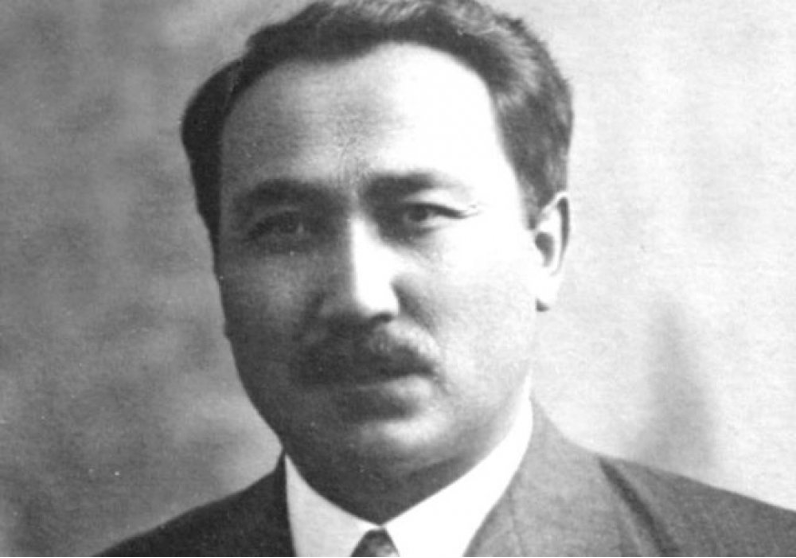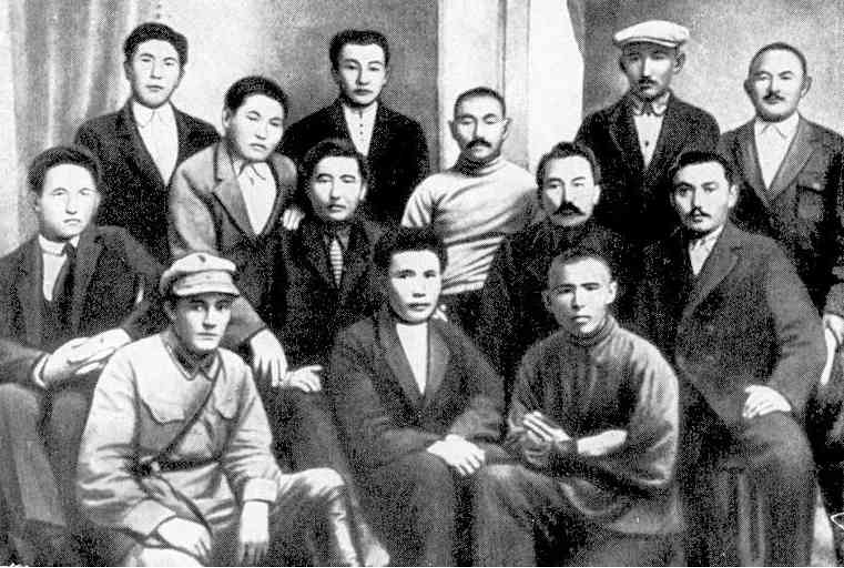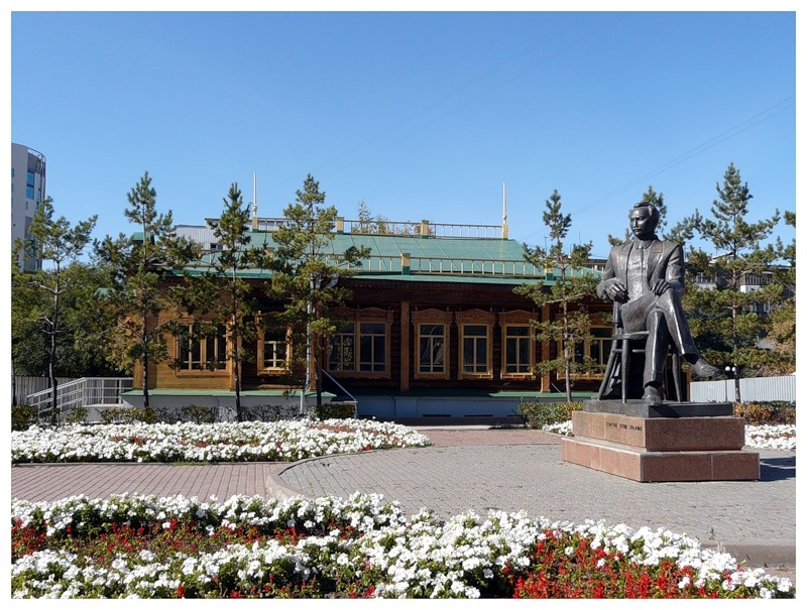In memory of the bright intellectual elite of the country on the Day of Remembrance of the Victims of Political Repression in Kazakhstan. In 2024, Saken Seifullin turns 130 years old.

Founder of the Writers' Union of Kazakhstan. One of the main conductors of cultural construction in Kazakhstan in the twentieth century. In 1913, the magazine "Aikap" published his first article.
In 1914, a collection of his poems "Өткен күндер" ("Past Days") about the first changes in the steppe was published. He was one of the leaders of the organization of Kazakh youth "Бірлік", created in Omsk in 1914.
In 1917, Seifullin began active political activity in Akmolinsk. In April 1917, he created the socio-political and cultural society "Жас қазақ" ("Young Kazakh"), in July 1917, Seifullin participated in the publication of the newspaper "Тіршілік" ("Life"). In May 1918, the premiere of the play based on S. Seifullin's play "Бақыт жолында" ("On the way to happiness") took place.
In June 1918, a White Guard coup took place in Akmolinsk, Seifullin was arrested and in January 1919 was sent in stages from the Akmola prison to Petropavlovsk. He spent 47 days in the "death car", later described by the writer in his novel "The Thorny Path". In May 1920, he returned to Akmolinsk, which was recaptured by the Red Army. As one of the most authoritative figures, S. Seifullin was elected to the government and the Presidium of the KazCEC. He took the most active part in the development of the first state decrees. With Seifullin's erudition and perseverance, Kazakhstan began to return the original Kazakh lands. On June 13, 1922, he was appointed Deputy People's Commissar of Education of the Republic and editor of the republican newspaper "Еңбекші қазақ". He was the founder of the Writers' Union of Kazakhstan. He was one of the first to take the post of Chairman of the Council of People's Commissars of the Kyrgyz SSR (1920–1925).
Despite his active socio-political activity, Seifullin continued to be a poet and write poems. In 1922, a collection of his poems "Асау тұлпар" ("Untamed Stallion"), the drama "Қызыл сұңқарлар" ("Red Falcons") was published.
1924 was a turning point in the life of Saken Seifullin, when the struggle for power in the ranks of the Bolsheviks intensified, and the theme of class stratification in relation to the Alashordians began in the Kazakh steppe. The development of Kazakh literature in the 1920s and 1930s took place in the most difficult conditions.

Saken Seifullin was a model of a multifaceted poet. Already in his first collection "Past Days" there are both idyllic landscape lyrics and loud patriotic leitmotifs. Following the precepts of the new literature, the young poet considered the great Abai his teacher. He learned both the art of versification and love poetics from him. "Unforgettable", "Where we said goodbye", "To my beloved" and a number of other poems were written under the influence of Abai's lyrics.
Moreover, he continues to collect folklore works of the Kazakh people. In particular, he manages to publish such collections as "Samples of ancient Kazakh literature", "Leili and Majnun" and others. In 1931, excerpts from his satirical novel "Our Life" are published.
In early 1934, Saken Seifullin, along with other representatives of the Kazakh intelligentsia, began working at the Kazakh Research Institute of National Culture. Other famous scientists also worked at the Institute: a prominent Kazakh orientalist and statesman Sanjar Asfendiarov: one of the founders of Kazakh linguistics, turkologist, teacher, professor Khudaibergen Zhubanov; educator Konyrkhoja Hojikov; the great writer, classic of Kazakh literature Mukhtar Auezov; turkologist Ismet Kenesbaev; one of the founders of Kazakh linguistics, researcher of Kazakh philology Sarsen Amanzholov. During this period, the first generalizing works on the problems of Kazakh linguistics and literary criticism were created, at the origins of which stood Saken Seifullin, Akhmet Baitursynov and Khudaibergen Zhubanov. Thanks to the direct support of S. Seifullin, "1000 songs" by A. Zataevich were published.
The tragedy of the poet was that he was a sincere herald of the new order, the victims of which were millions of Kazakhs during the years of famine and repression. On February 25, 1938, he was sentenced (under Article 58) to the death penalty as an "enemy of the people". On March 21, 1957, he was rehabilitated by the Military Collegium of the Supreme Court of the USSR for lack of corpus delicti.

Saken Seifullin will remain in the historical memory of our people as a bright representative of the Kazakh intelligentsia of the last century. In honor of the writer, avenues and streets are named in the cities of Omsk, Almaty and Astana, a monument has been erected in the capital of Kazakhstan. The S. Seifullin Museum operates in Astana, and the capital's Kazakh Agro-Technical University is named after him. Scientific conferences are held annually in his honor, a postage stamp was issued. Many educational institutions in the country are also named after Saken Seifullin.
(Based on materials from the Ch. Valikhanov Institute of History and Ethnology)